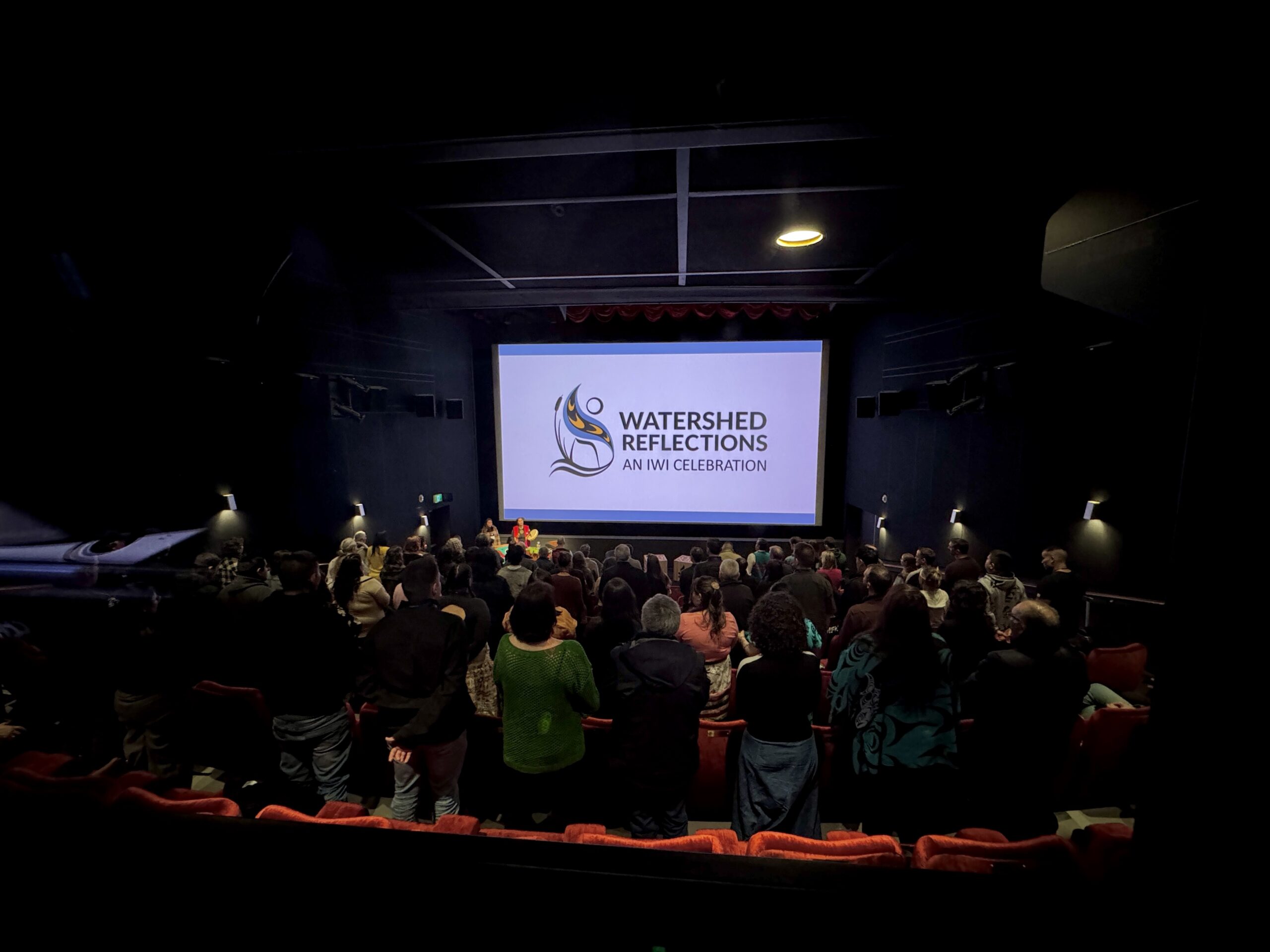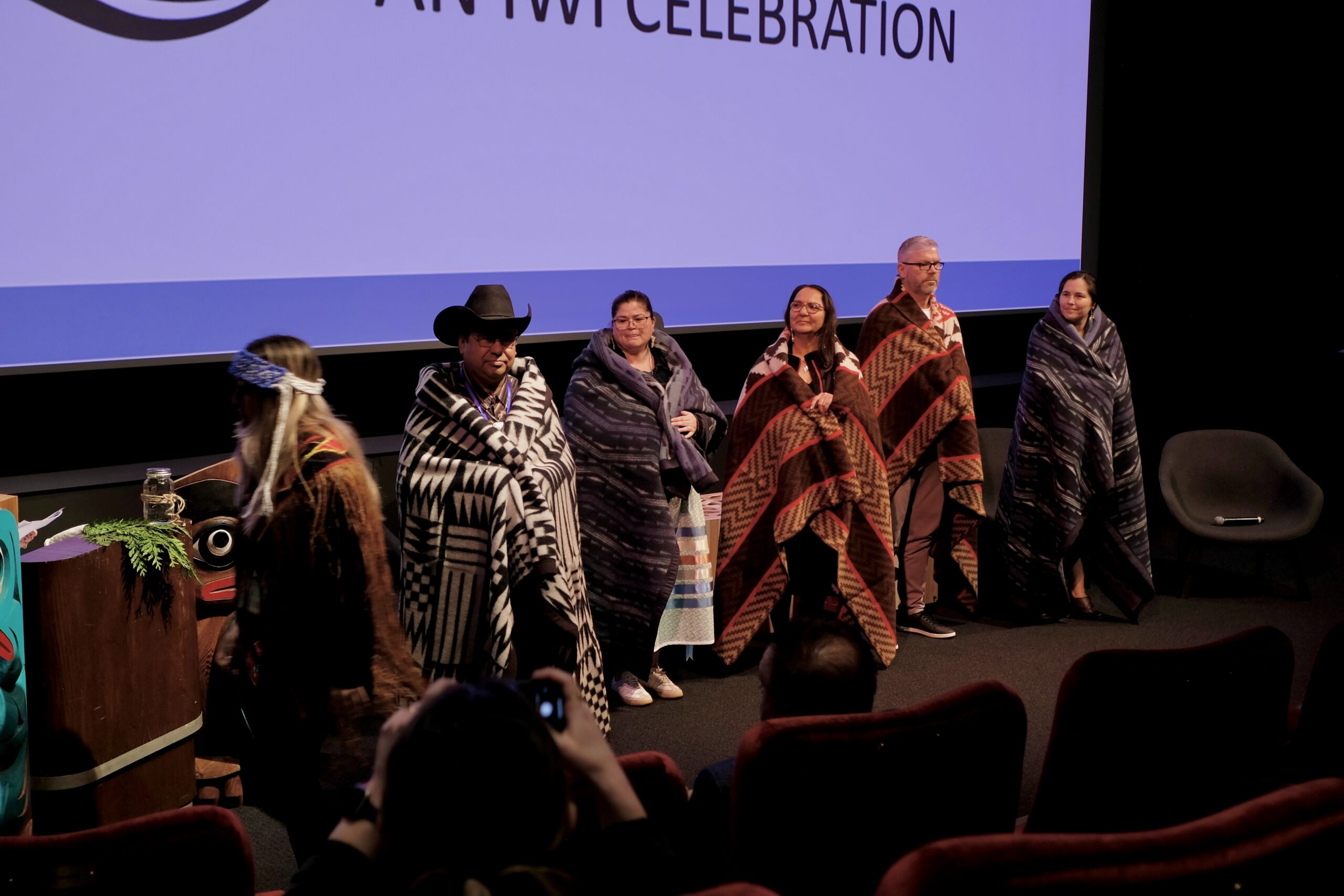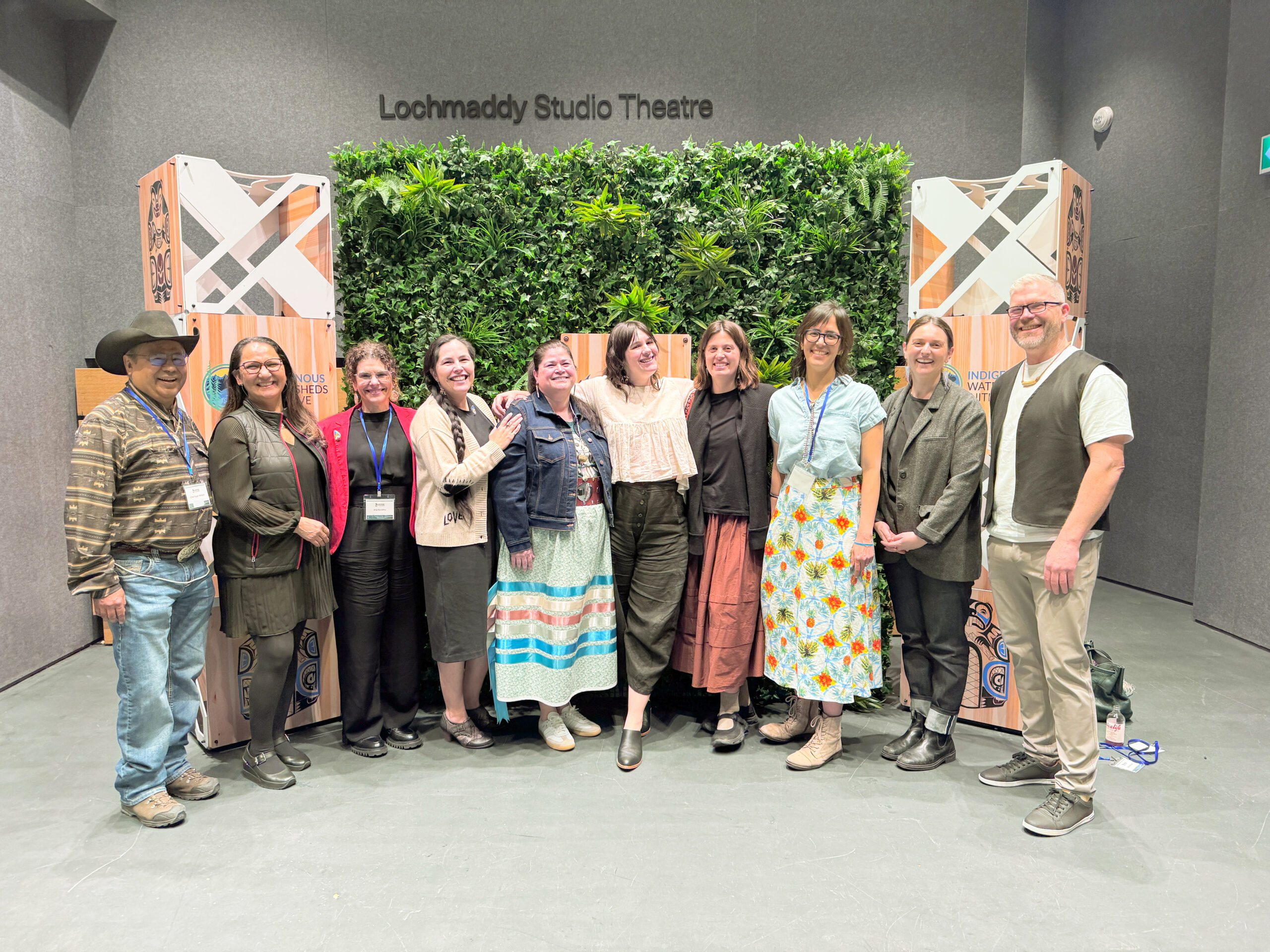Early this spring, members, partners, and friends of the Indigenous Watersheds Initiative (IWI) gathered to celebrate the leadership of First Nations communities across ‘British Columbia’ who are stewarding and restoring their watersheds.
Watershed Reflections celebrated some of the First Nations communities and organizations leading this work and marked the end of IWI’s three-year funding initiative.
IWI was first established in 2022 through a $15 million investment from the Province of British Columbia. The initiative granted over $11.5 million to 49 distinct First Nations-led and co-led projects across the province. The program was delivered in partnership with MakeWay and Watersheds BC, guided by a dedicated group of 9 Indigenous Advisors.
Map of IWI funded projects:
The gathering brought together project teams funded through IWI to connect, share, and celebrate the important work they have been leading. The event featured opportunities to connect with peers, storytelling through film, and panel discussions led by members of IWI’s Indigenous Advisory Committee. It was a day of honouring the ongoing project work that has, and continues to, shape the future of watershed stewardship in B.C.

The premiere of ‘Our Waters’ at Watersheds Reflections
A highlight of the event was the premiere of eight featured films, each portraying the ecological, economic, cultural and community impacts of Indigenous-led stewardship and exploring how it strengthens people, lands, and cultures. Some of the films included Salmon Parks by the Mowachaht/Muchalaht First Nations, Unveiling Bull Trout by Tsay Keh Dene First Nation, Homecoming by Katzie First Nation, Sik-e Dakh Youth Program by Gitxsan Watershed Authorities, Xáat Resiliency by Taku River Tlingit First Nation, Take It to The Water by Autonomous Sinixt.
Among the featured films, ‘Our Waters’ debuted at the gathering. Our Waters is an IWI short film produced collaboratively with staff, Olam Films, and five communities. The film follows the work of Ts’il Kaz Koh First Nation, Hesquiaht First Nation, Quatsino First Nation, Stqeeye’ Learning Society, and the Upper Fraser Fisheries Alliance—who received funds through the program.
‘Our Waters’ reminds us that protecting water is not just about ecological health but also cultural survival, governance, and intergenerational well-being.
The films and event itself reinforced the holistic nature of the work being led by project teams – ranging from the restoration of salmon habitats, protection of drinking water, traditional food harvesting, intergenerational learning, and much more.

“I was feeling a bit beaten down about the state of the world and the environment. Attending the IWI Reflection afterward was wonderful—it reminded me that positive, impactful progress is happening. I cried during the film about the salmon run, which had dropped to around 100 fish but, through restoration efforts, had risen into the thousands,” said a community partner from the First Nations Fisheries Council.
While Watershed Reflections was a celebration of the three-year initiative winding down, attendees were reminded that it was not an ending. The gathering was a celebration of the collective strength of watershed work being done, and the need to continue to support Indigenous-led water stewardship.
One such pathway forward is the evolving work of the Watershed Security Fund. Co-developed and co-delivered by First Nations, this Fund will support the continuation and scaling of this work into the future.
MakeWay is honoured to have participated as a partner and operational host to IWI, and will continue to support Indigenous-led watershed security work and uplift program learnings as part of our ongoing programmatic commitments.
To learn more about the Indigenous Watersheds Initiative, visit their website at www.indigenouswatersheds.ca or follow them on social media @indigwatersheds. Additionally, explore the ongoing work of the Nations whose efforts continue beyond the program’s conclusion.
A full list of funded project teams is available on IWI’s website.
